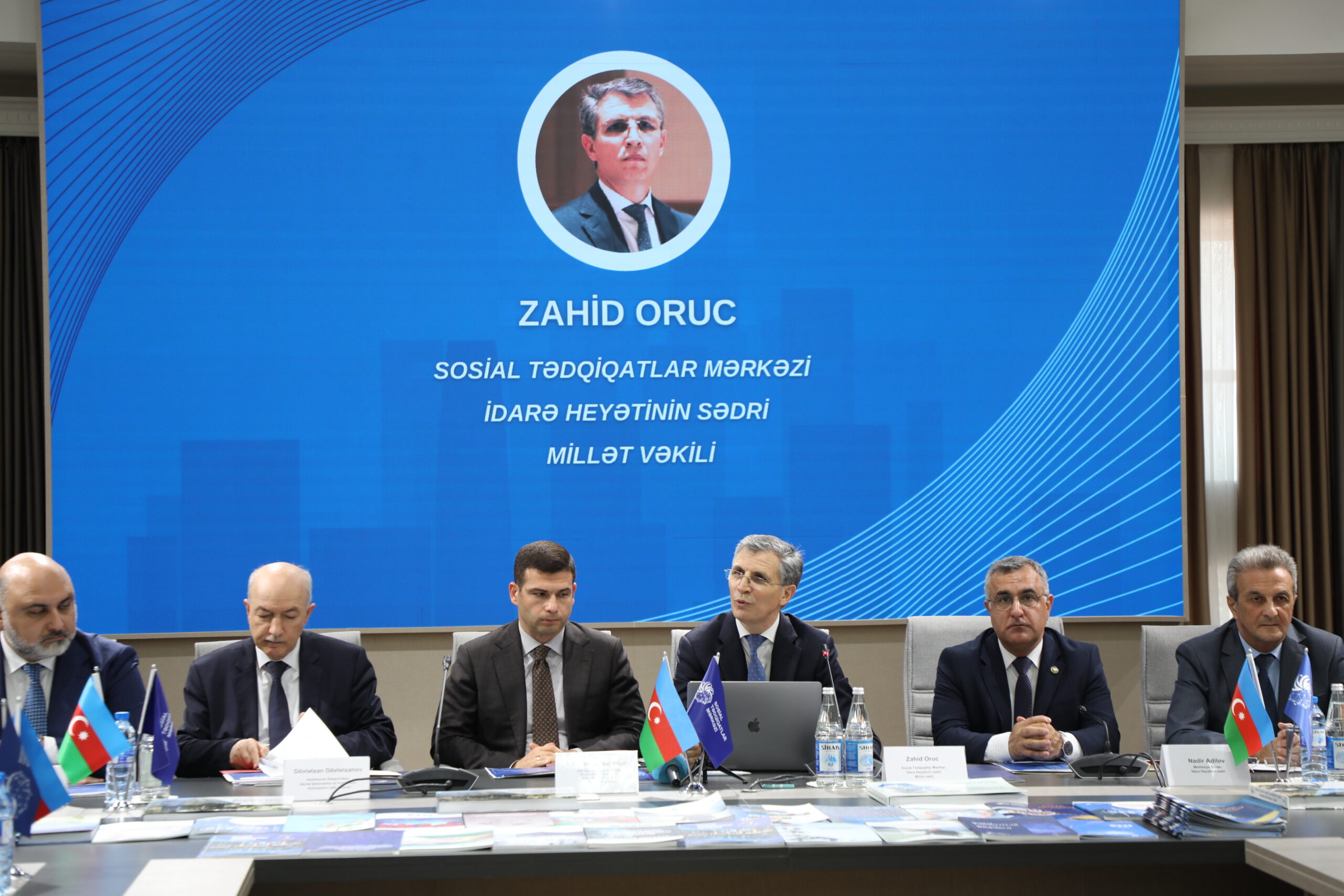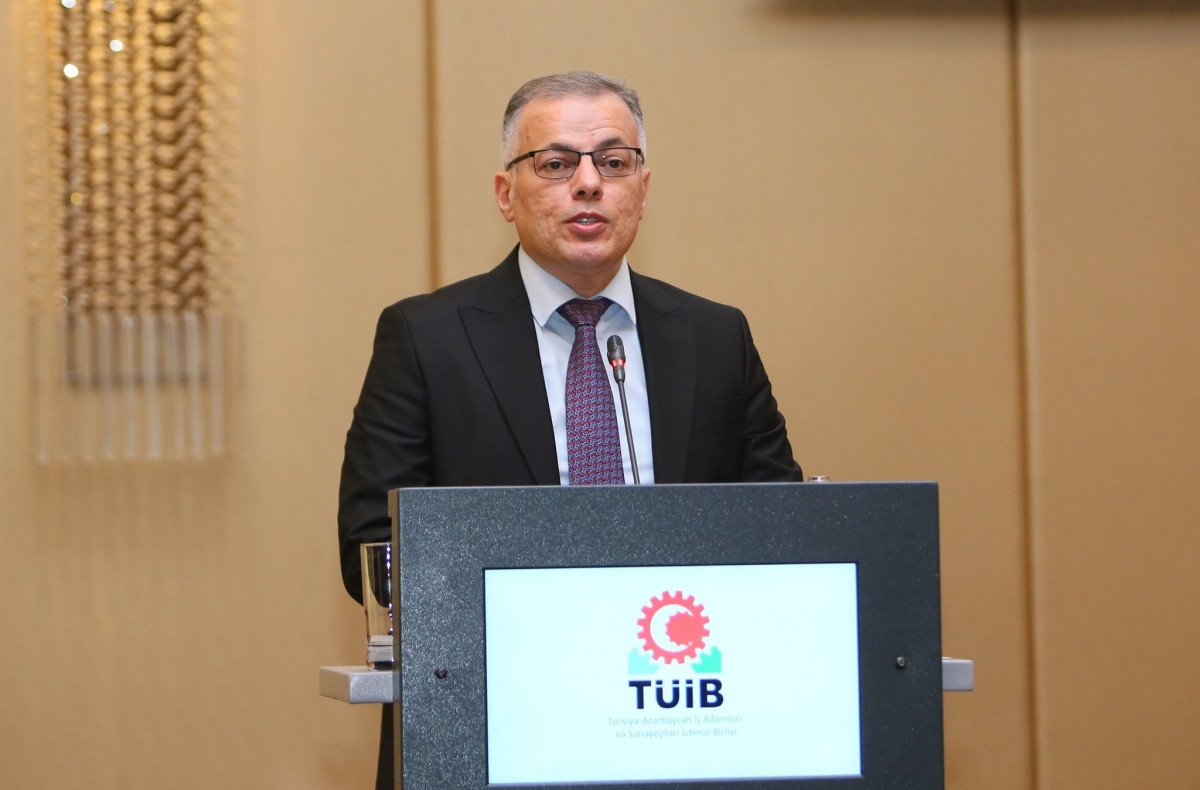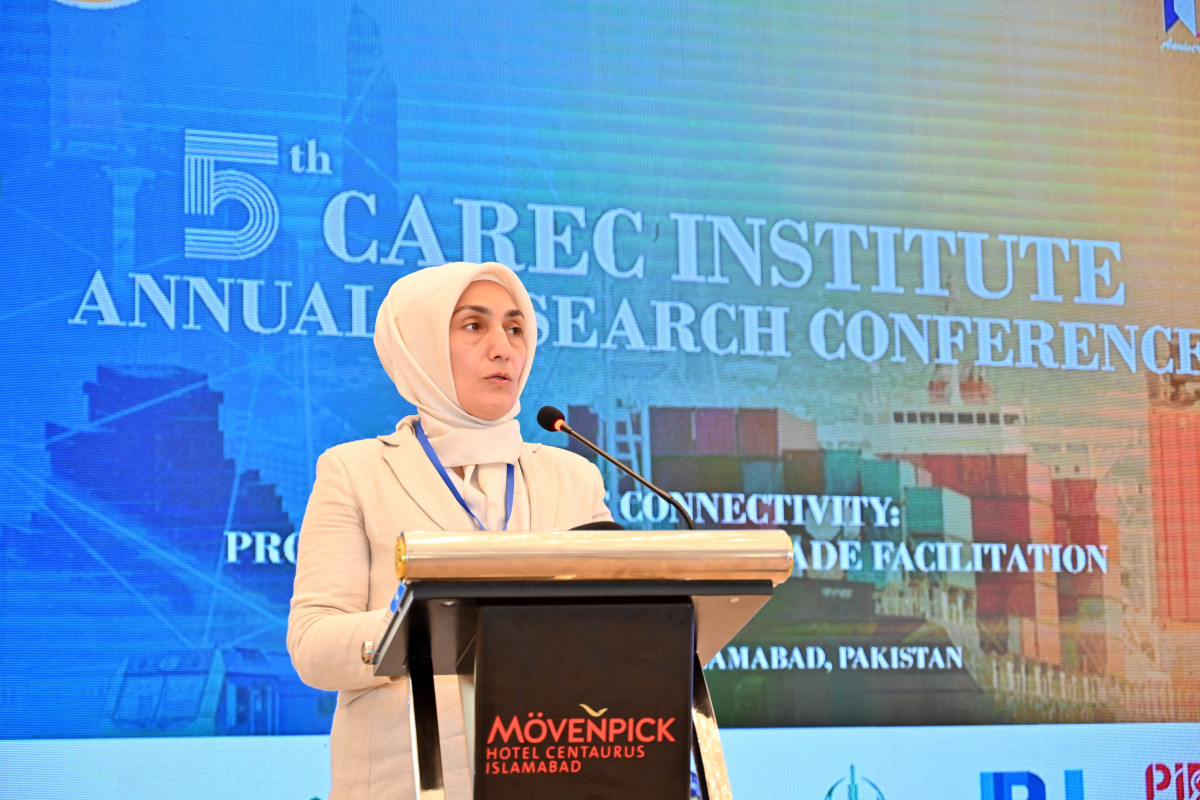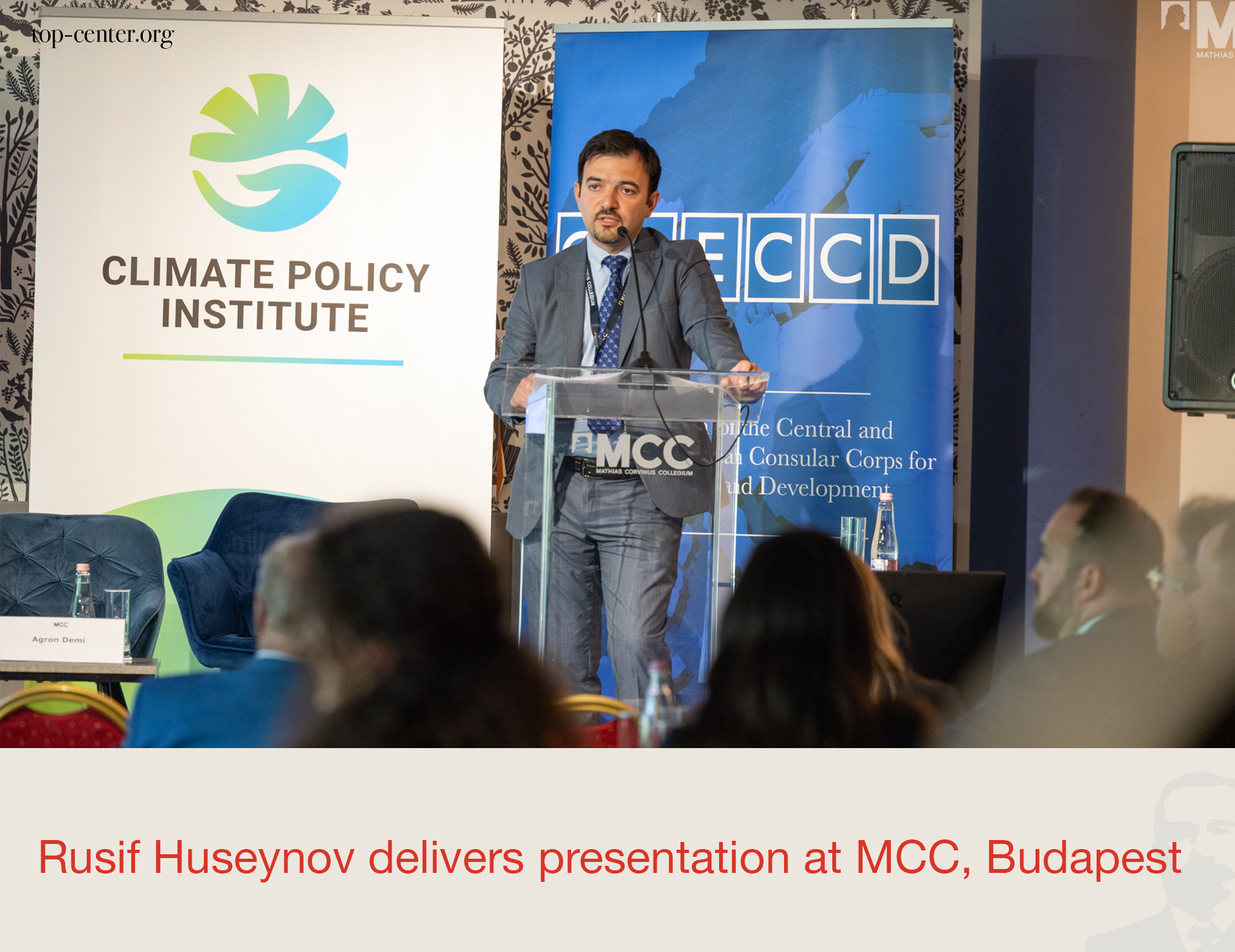On May 19, 2025, the Social Research Center held a scientific and practical conference focused on the evolving challenges and emerging expectations in the development of Baku’s housing stock.
The event brought together representatives from various government agencies, regulatory bodies, expert communities, and academic institutions. The central aim of the conference was to strengthen institutional dialogue around both the current condition and future development of the capital’s residential infrastructure. Speakers addressed a wide range of pressing issues, including urbanization trends, the lifespan of buildings, and shifts in the real estate market. Discussions placed particular emphasis on energy efficiency, the resilience of existing infrastructure, and the need to improve regulatory frameworks. The conference also served as a platform for in-depth exploration of contemporary urban planning approaches and the implementation of modern planning models. Participants shared conceptual proposals and alternative strategies aimed at upgrading the housing stock. Key topics of discussion included formats for intersectoral cooperation, legal instruments, and the role of market participants in shaping the future of Baku’s urban residential environment.
Experts emphasized the importance of establishing an optimal balance between the public and private sectors in the renewal and reconstruction of the housing stock. Comprehensive analyses conducted during the conference reaffirmed the need for an integrated approach to developing the capital’s residential sector.
Experts emphasized the importance of establishing an optimal balance between the public and private sectors in the renewal and reconstruction of the housing stock. Comprehensive analyses conducted during the conference reaffirmed the need for an integrated approach to developing the capital’s residential sector.
Speaking at the event, Zahid Oruj, Chairman of the Board of the Social Research Center and member of the National Assembly (Milli Majlis), noted that the National Action Plan for 2022–2026 outlines key objectives for the construction sector. “By 2040 the total residential area in Baku is expected to grow by 64% compared to 2020, rising from 47 million to 78 million square meters. By 2027, it will have reached 66 million square meters — a 39% increase,” he stated. At the same time, he pointed out a persistent issue: the lack of accessible open data. To date, there is no clear information on what portion of deteriorating property qualifies as part of the residential housing stock, and what portion falls under other categories of real estate.
According to experts, the rapid expansion of the housing stock contributes to increased population density. Local economic conditions are driving greater investment in real estate and accelerating residential construction. In major cities with high demand for rental housing, residents are channeling their available capital into the housing sector.
However, the influx of people into Baku is putting significant pressure on the housing market. This internal migration is one of the main factors behind the imbalance in housing development across regions. Between 2009 and 2020, the total residential area in the Absheron district grew by 140%, while the nationwide increase was only about 24%, and in some regions, it remained within 20%. The disparity in the number of housing units per 1,000 residents across regions is also striking — in some cases, the gap exceeds a fourfold difference.
Between 2018 and 2023, the total number of apartments in the country grew by 122,000 units — an 11% increase. Of these, around 73,000, or approximately 60%, were built in Baku, Sumgayit, and the Absheron region.
Azerbaijan’s real estate market is marked by strong momentum, reflecting both steady economic growth and consistently rising demand for housing. It is the country’s largest construction companies—those setting development standards—that are shaping the modern face of cities, improving residents’ quality of life, and responding to economic and social needs. To compile a Top 10 ranking of Azerbaijan’s construction companies, one could evaluate residential and commercial properties completed in recent years, their geographic distribution, investment appeal, and the developers’ overall quality and reputation. This approach offers a balanced view of each company’s position within the market. The country is home to numerous domestic construction companies that value their reputation and strive to ensure customer satisfaction. However, the sector is not without its challenges. Some players continue to operate unlawfully, undermining the rights and interests of citizens through questionable practices. Notably, over the past decade, more than twenty heads of construction companies have faced criminal prosecution—clear evidence of the serious issues still present in the industry.
Rankings play a crucial role in gaining international visibility. It’s no secret that a growing number of Azerbaijani construction firms are already investing beyond the country’s borders—in post-Soviet states, neighboring regions, and in particular, in the brotherly nation of Türkiye.
Yet within the country itself, legal and procedural gaps continue to slow development. For example, the Urban Planning and Construction Code does not set a clear timeframe for reaching agreements with residents in redevelopment zones. This legal ambiguity often leads to significant financial losses. Construction companies that invest heavily in temporary housing, transportation, design, planning, and mobilizing labor forces can find their projects stalled due to the inability to reach an agreement with a small number of property owners. Such delays can stretch into months—or even years—despite the majority of residents having already signed off and eagerly awaiting progress. As frustrations grow, the situation begins to unravel in a domino effect, with dissatisfaction spreading. If negotiations were required to be completed within a reasonable and clearly defined period, the process of renewing the city’s housing stock would likely generate mutual satisfaction rather than public discontent. Moreover, this lack of timeline clarity also creates an obstacle for attracting foreign investment, which relies on predictable and transparent regulatory environments.
There is hope that the government, legislative bodies, business sectors, civil society, and specialized institutions will establish a stable dialogue and identify effective solutions to the challenges facing the construction industry. Regulation and oversight in this sector are undoubtedly of critical importance—after all, the safety of citizens is a constitutional responsibility of the state. At the same time, with 14 different agencies currently overseeing construction activities, it becomes increasingly clear that the oversight system itself needs to be reevaluated. In such a fragmented regulatory environment, ongoing communication and mutual understanding between public authorities and the business community are more vital than ever. The idea of consolidating construction policy under a single centralized authority has already been raised on numerous professional and public platforms—underscoring a growing consensus on the need for more coherent governance in this critical sector.
It’s important not to overlook that the large-scale construction efforts in Karabakh and Eastern Zangazur play a pivotal role in the development of the country’s entire construction sector. The implementation of ambitious projects in the liberated territories—including road construction, energy and utility infrastructure, airports, as well as residential and administrative buildings—funded by over 19 billion manat ($11.176 billion) from the state budget, clearly demonstrates the vast scale of this new phase of national development, which can truly be described as the Revival of the Homeland.
One of the key partners of the event was the Azerbaijan Small and Medium Business Development Agency (KOBIA). By actively supporting entrepreneurs’ involvement in the renewal of urban infrastructure, the agency plays a strategically vital role in this process. KOBIA’s participation in such initiatives helps foster synergy between sustainable urban development and entrepreneurial activity.
Experts speaking at the conference also addressed the condition of the aging housing stock, modern approaches to its management, and the application of various repair and reconstruction models. Participants paid special attention to the urgent need to update real estate valuation mechanisms in response to the evolving housing market. In this context, the active involvement of the Azerbaijan Appraisal Chamber and its recommendations attracted significant interest. The conference provided a valuable platform for deep integration and knowledge exchange among specialists from different sectors. It was decided to consolidate the proposals presented, with the aim of incorporating them into future development concepts. The event placed particular emphasis on statistical and analytical data concerning the renewal of the capital’s housing stock. Assessing development trends, prioritizing them, and shaping a long-term urban planning approach emerged as key outcomes of the conference. The presentations underscored once again the vital role of urban management in implementing national economic strategies. As a result, it was proposed to harmonize common approaches and begin preparing relevant policy recommendations for the next phase. The scientifically grounded reports and statistical data shared during the conference laid the foundation for outlining the contours of future urban planning.
Participants highly appreciated the strategic vision focused on the harmonious development of the capital’s social, economic, and technical dimensions.
The outcomes of the conference have the potential to play a significant role not only in the scientific and intellectual sphere but also in supporting the justification of practical decisions. All recommendations and approaches presented during the event will be systematically compiled for subsequent review by the relevant authorities.
Regularly hosting such forums in the future will make a vital contribution to deepening and advancing the country’s national development strategies.





